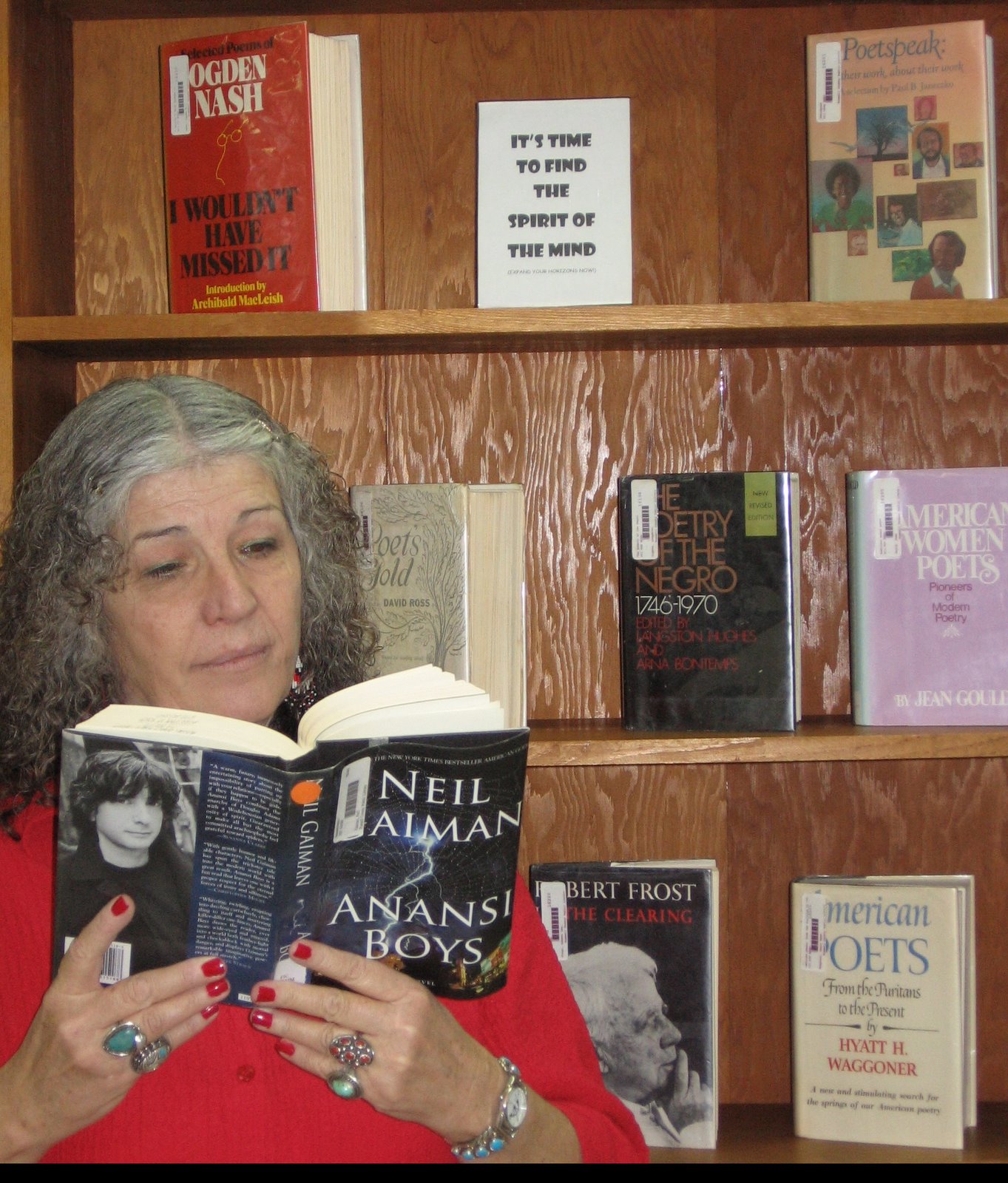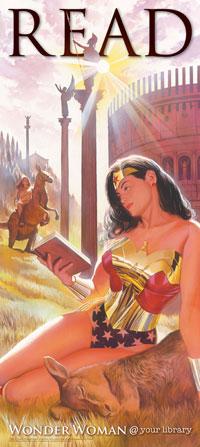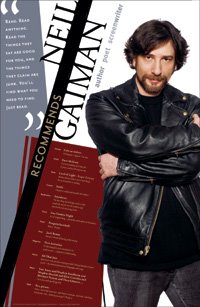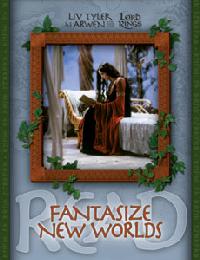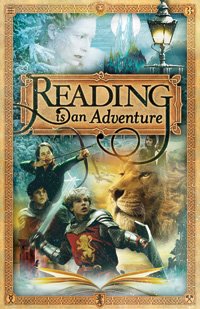Monday, June 29, 2009
The Librarian Song
Wednesday, June 24, 2009
A Literary Legend Fights for a Local Library
“I don’t believe in colleges and universities,” Ray Bradbury, 88, said. “I believe in libraries.”
Full story here.
Monday, June 22, 2009
Even Now by Karen Kingsbury
This book is #1 in Kingsbury's "Lost Love" series. This is a book that deals with teenage pregnancy, and even involves the war in Afghanistan later in its narrative, and is full of Kingsbury's trademark sentimentality. It is a book that explores young love and the ramifications of poor choices.
The story involves a young couple, Shane Galanter and Lauren Anderson. Lauren becomes pregnant at the young age of 17. Both Shane's parents and Lauren's are against them keeping the baby and try to talk her into putting the baby up for adoption, having the kids finish high school and go on to college, and basically just going on with their lives. Lauren wants to keep the baby from the start and try to make a life with Shane, despite their extreme youth. The book then follows a series of choices that the couple and their family make and how these choices lead to tragic ramifications in their lives. There are several implausible occurrences that happen over the course of the story and Kingsbury is somewhat simplistic in some of her portrayals, but the basic story has plenty of sentiment to keep the reader involved and it's a heartwarming story about forgiveness and the power of love.
Friday, June 19, 2009
Cover Browser
Wednesday, June 17, 2009
Amazon
Is Amazon taking over the book business? Check out this recent Time magazine article on Amazon and its founder, Jeff Bezos. Time Article. I found it very interesting. I think I say several times a day when looking something up on Amazon for a patron, "Gee, I don't know what we did before Amazon came along." This article on Amazon's vast empire and how it got so big is very thought provoking. And how about that Kindle? I haven't purchased one yet, I'm still too much of a bibliophile for that. But I do like the fact that you can store 1500 books on one. It's a lot easier to carry your reading with you if you have one of these new toys than it would be to carry the actual books (not that you would want to carry 1500 with you!). Anyway, very interesting....
Monday, June 15, 2009
Wicked Plants: a book of botanical atrocities
Sunday, June 14, 2009
Shutter Island by Dennis Lehane
What makes me think of it now, and offer it up as a good read, is this trailer just posted for the movie coming out in October. I'm looking forward to the movie, as I very much enjoyed the book. The movie will be directed by Martin Scorsese and starring Leonardo DiCaprio (one of the most talented young actors on the scene today, and someone who I always try to catch in whatever role he is currently playing). It looks like the film is going to do a very good job of capturing the mood or feel of the book. But I do advise you to read the book first, before you see the film. You'll enjoy the book and it will no doubt enhance the film experience for you.
The Food of a Younger Land
In fact, there is a documentary done by Eric Schlosser and Michael Pollan released on DVD called Food Inc. that I intend to buy. Here's the trailer:
I am a supporter of our local Farmers Market and the entire movement to buy locally grown produce, where it is picked at the peak of its freshness, picked within a few hours of when you buy it, and local growers reap the profit--not some anonymous middle man.
The thing that attracted me to this book was its subtitle: "A portrait of American food--before the national highway system, before chain restaurants, and before frozen food, when the nation's food was seasonal, regional, and traditional--from the lost WPA files".
This book takes us back to the food habits of a younger America, before the interstate highway system brought us all closer together, before chain restaurants erased geographical boundaries and brought a uniformity and diminishing of quality, and before refrigeration led us to frozen food in mass quantity.
In the 30's during the depression Roosevelt created the Federal Writers' Project under the Works Progress Administration. They dispatched writers across the country to report on the eating habits, traditions, and struggles of local people. The project was called "America Eats", but it was abandoned in the early 40's because of the war. Kurlansky has unearthed this forgotten treasure and brings it to life in this book. The book contains many recipes and Kurlansky does have a keen eye for odd facts and natural details. In the section "The South Eats" there is a recipe for Kentucky Ham Bone Soup (a plantation recipe) and Kentucky Burgoo.
This book is a fascinating read about a bygone era when Americans had never heard of fast food and grocery superstores were unimaginable.
Friday, June 12, 2009
Monday, June 8, 2009
In Defense of the Sci-Fi genre
I love reading science fiction/fantasy. I find it a genre of ideas, and I love to see how they take basic science and build on it to come up with really interesting future scenarios in their stories. I think it is a misunderstood genre in a lot of ways. I think those folks who say they don't like it are thinking of some pretty awful stuff they may have stumbled across somewhere along the way and they think that this drek represents the whole genre.
I read a really terrific column by Ben Bova on naplesnews.com called Maybe Leaders Should Read More Science Fiction. I agree with everything Ben says in the column, but in particular these two paragraphs stood out:
"In the past, science-fiction writers have written about computers, robots, space flight, nuclear power, organ transplants, prosthetic limbs, brain stimulators, climate change, overpopulation and a myriad of other ideas and possibilities — usually several decades before they became actualities.
If our political leaders had been reading science fiction, we might have been spared the Cold War, the energy crises, the failures of public education and many of the other problems that now seem intractable because we were not prepared to deal with them when they arose."
I wish I could get our local book club to read more of this genre, but they don't seem too interested in it. Maybe I should share with them Ben's closing paragraph:
"Science fiction, at its best, is an experimental laboratory where you can test new ideas to see how they might affect people and whole societies. To my mind, it should be required reading for everyone."
I agree.
Note: Naples resident Ben Bova is the author of 120 books, including “The Immortality Factor,” a novel about stem-cell research. Bova’s Web site address is www.benbova.com
From LISNews Librarian And Information Science News
Librarians As Heroes
June 8, 2009 - 4:44pm — birdieMost people who enter the library need assistance, and sometimes it's not just a matter of an easily answered question.
Will Van Sant of the Tampa Bay Times reminds us that the current economy has created additional duties for this new brand of librarian...librarian-cum-social worker. He calls them 'the heros of the recession'.
Van Sant says: "Take mild-mannered David Stoner. Trained to help adults discover the trial of Socrates and sixth graders track the Oregon Trail, he now spends half his time in the trenches of a battered economy. There his job is far more urgent: helping people who need jobs, food stamps or Medicaid.
"These days, it's really social work in some respects," said Stoner, who directs adult services for the Clearwater Public Library System. "And it's really satisfying to see how much you are helping.
Karen Prall has been a Clearwater library regular since September, when she lost her dental assistant job. She doesn't like going to WorkNet Pinellas, a nonprofit workforce development agency. She said staff there are overworked, disorganized and dismissive.
When she visited the library on a recent Friday afternoon, Stoner swiftly had Prall, who has limited computer experience, posting her resume to the Web.
"The library is really the only place you can go to get direct help immediately," said Prall, 39. "You ask them and they don't say, 'I'll be with you in 20 minutes.' They'll come over and help you right away."







